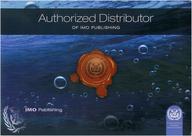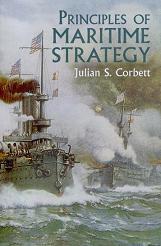Catálogo - LIBROS NÁUTICOS - Historia - Estrategia Naval
Principles of Maritime Strategy
Autor: Julian S. Corbett
Editorial: Dover
Año de edición: 2.004
9780486437439
Encuadernación: rústica
317 pág.
13,5 x 21,5 cm.
22,00€
Temporalmente sin existencias
Contenido:
This brillant exposition established British naval historian Julian Corbett (1854-1922) as one of the great maritime strategists. In this work, Corbett placed naval warfare within the larger framework of human conflict, and proposed that the kay to maritime dominance lies in the effective use of sea lines for communications and in denying that use to the enemy. His view of naval strategy as a means to an end, with a goal defined by national strategy, makes this work of enduring value.
Principles of Maritime Strategy emphasizes precise definitions of terminology and ideas as the antidote to loose and purposeless discussion and the direct path to the fundamental data on which all are agreed. As Corbett notes in the introduction, "In this way we prepare the apparatus of practical discussion; we secure the means of arranging the factors in manageable shape, and of deducing from them with precision and rapidity a practical course of action. Without such an apparatus no two men can even think on the same line; much less can they ever hope to detach the real point of difference that divides them and isolate it for quiet solutions"
Much quoted and referenced, this ever-relevant work is an indispensable resource for military professionals, historians, and students.
Índice:
INTRODUCTION
The theoretical study of war. Its uses and limitations
PART I. THEORY OF WAR
I. The theory of war
II. Natures of wars. Offensive and defensive
III. Natures of wars. Limited and unlimited
IV. Limited war and maritime empires
V. Wars of intervention. Limited interference in unlimited war
VI. Conditions of strench in limited war
PART II. THEORY OF NAVAL WAR
I. Theory of the object. Command of the sea
II. Theory of the means. Constitution of fleets
III. Theory of the method. Concentration and dispersal of force
PART III. CONDUCT OF NAVAL WAR
I. Introductory
I.1. Inherent differences in the conditions of war on land and on sea
I.2. Typical forms of naval operaions
II. Methods of securing command
II.1. Obtaining a decision
II.2. Blockade
III. Methods of disputing command
III.1. Defensive fleet operations. "A fleet in being"
III.2. Minor counter-attacks
IV. Methods of exercising command
IV.1. Defence against invasion
IV.2. Attack and defence of trade
IV.3. Attack, defence and support of expeditions
INDEX
Precio: 22,00 €, I.V.A. incluido (4%)
[ Volver ]


